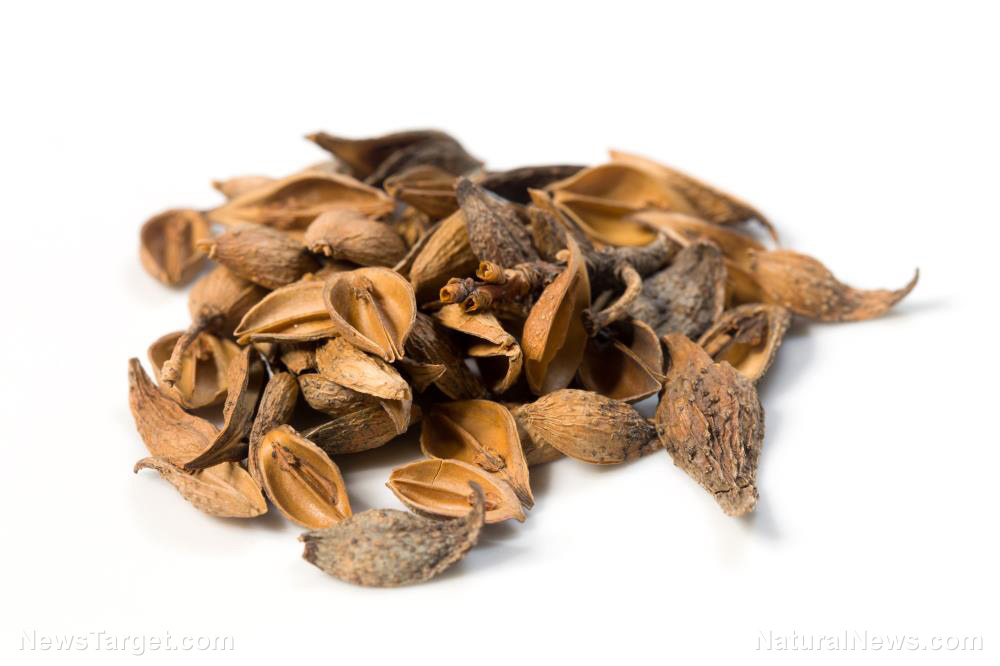A happy gut for a happy mindset – can it stave off depression?
07/24/2019 / By Evangelyn Rodriguez

The gut microbiota refers to microbial communities that live in the gastrointestinal (GI) tract. They play an important role in digestive, metabolic, and immune functions. There is increasing evidence that gut microbiota can influence and modulate emotional behavior. Similarly, psychological stress can also affect the homeostasis of these microorganisms. To determine if gut microbiota can have a positive effect on anxiety and depression symptoms in humans, researchers from York University in Canada systematically evaluated current literature on the impact of probiotic supplementation on mental health. Probiotics are live cultures (bacteria and yeasts) found in fermented foods. They help promote GI health by restoring the composition of gut microbiota. The review of how probiotics consumption positively affects anxiety and depression symptoms was published in the journal Nutrition Research.
Probiotic supplementation can reduce anxiety and depression symptoms in humans
For their study, the researchers used multiple databases, such as Medline, PsycINFO, PubMed, Scopus, and Web of Science, to search for relevant trials. They focused on randomized controlled trials published between January 1990 and January 2016 and found a total of 10 trials – four in clinically diagnosed and six in non-clinical samples – that provided support for the use of some probiotics in reducing human anxiety and depression. Despite methodological limitations and the complex nature of gut-brain interactions, the results of those trials suggested that probiotics supplementation offers psychological benefits to humans.
A review published in Annals of General Psychiatry also examined the effect of probiotics on depressive symptoms. The researchers reported that an extensive bidirectional communication network exists between the GI tract and the central nervous system – a network now known as the gut-brain axis. Research on the gut-brain axis revealed that changes in the microbiome are linked to psychiatric disorders. Because most antidepressants are limited to altering neurotransmitter activity in the brain, studies are now focusing on the potential of probiotics to change the outcomes or symptoms of mental disorders.
A study that appeared in the journal Nutrition described how an eight-week probiotics intervention significantly decreased the Beck Depression Inventory scores of patients diagnosed with major depressive disorder. The probiotics used for the study included freeze-dried strains of Lactobacillus acidophilus, Lactobacillus casei, and Bifidobacterium bifidum. The researchers reported that aside from improving depression symptoms, probiotics consumption also decreased the patients’ serum insulin, insulin resistance, and serum hs-CRP. The researchers also observed an increase in plasma total glutathione levels.
In terms of anxiety, probiotics also exhibit a positive effect. A study published in Psychiatry Research investigated the relationship between probiotics-containing fermented foods and social anxiety. The researchers recruited 710 individuals suffering from social anxiety and asked some of them to add fermented foods to their diet. They found that a higher frequency of consumption of probiotic-containing foods significantly decreased social anxiety symptoms. The researchers concluded that probiotics may have a protective effect against anxiety for people with higher genetic risk, as indexed by neuroticism.
Aside from having anxiolytic and antidepressant effects, probiotic supplementation also alleviates stress and exhaustion. A six-month study reported that the use of a probiotic multivitamin preparation had a positive effect on men and women suffering from either stress or exhaustion. The researchers reported a 40.7 percent improvement in stress in participants who took the probiotic multivitamin with their breakfast daily. They also found a 29 percent decrease in the frequency of infections and a 91 percent decrease in GI discomfort, indicating that the supplement could also improve the immune system and gut health.
Despite these studies, however, the behavioral effects of probiotic supplementation in humans, especially on anxiety and depression symptoms, is still not fully understood. This is because most studies use animal models to investigate the link between gut microbiota and mental health. Only preclinical studies on rodents have linked behavioral and neurochemical changes in the central nervous system to changes and imbalance in gut bacterial communities. In particular, probiotic supplementation in rodents has been reported to markedly change their behavior; these changes correlate with changes in their central neurochemistry.
Due to the small number of trials involving humans, the researchers concluded that a better understanding of developmental, modulatory, and metagenomic influences on GI microbiota, particularly in relation to mood and mental health, should be the focus of future research in this area.
Sources include:
Tagged Under: alternative medicine, Anxiety, anxiety relief, beatdepression, behavior, brain health, cognitive function, depression, digestion, digestive system, gastrointestinal tract, gut health, gut microbiota, immune system, mental health, metabolic function, natural cures, natural medicine, prevention, probiotics, remedies, research, stress relief, supplements
RECENT NEWS & ARTICLES
COPYRIGHT © 2017 ALTERNATIVE MEDICINE NEWS



















